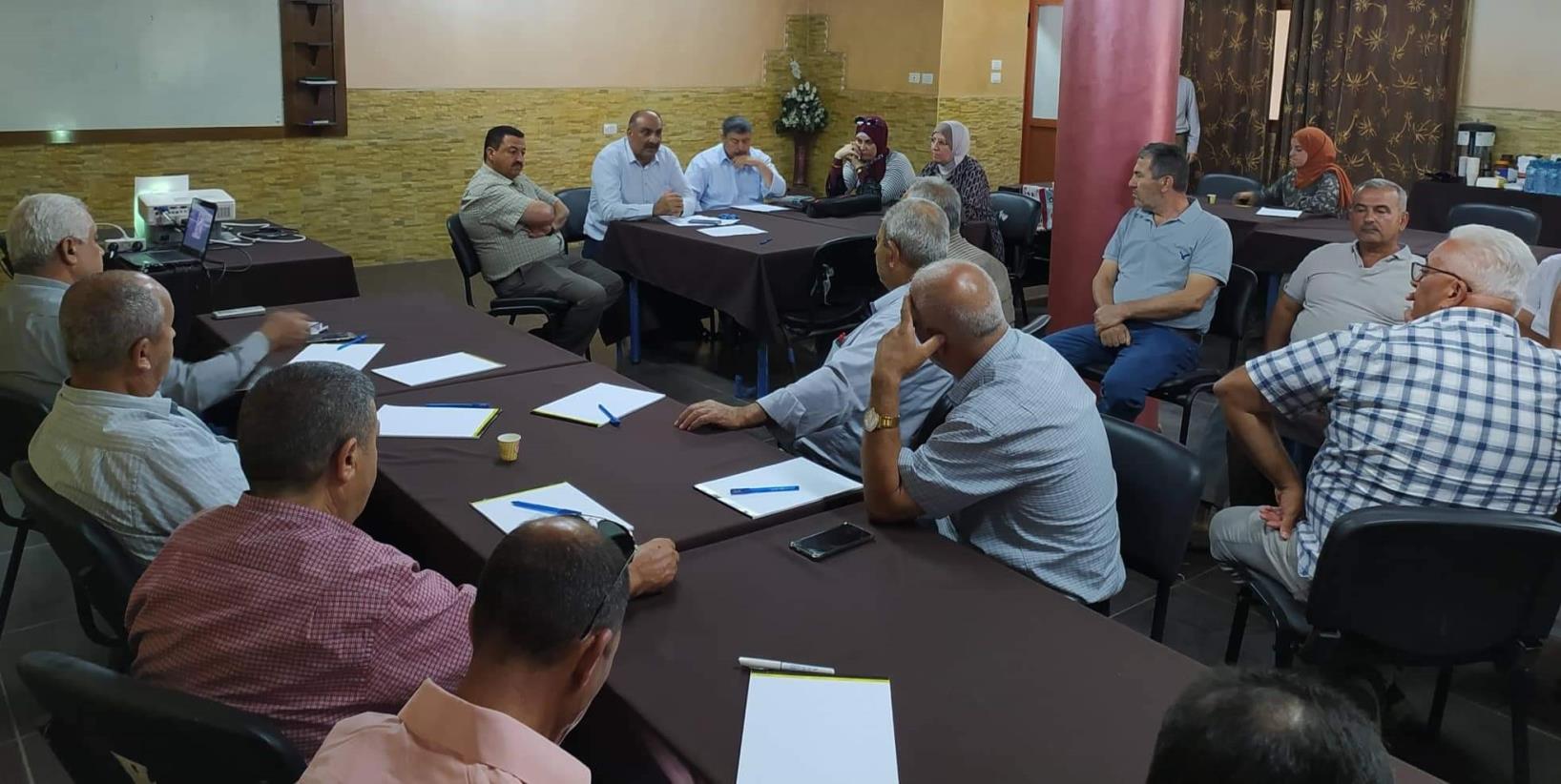40 farmers and extension agents attend an avocado Farmer Field School workshop in Qalqilya, Palestine

The Food and Agriculture Organization of the United Nations (FAO) organized a Farmer Field School (FFS) workshop on the fifth of June 2022 in Qalqilya, Palestine with the main objective of presenting the results of the two avocado FFS’s implemented in Falamya and Qalqilya, Palestine. The workshop was attended by 40 participants including avocado farmers and extension agents from the Ministry of Agriculture.
The workshop was opened by Ahmed Eid, the Director General of the Agriculture Directorate, where he discussed the avocado crop and the importance of establishing FFS’s and their role in the development of Palestinian farms. Issam Nofal, FAO project coordinator in Palestine, spoke about FAO’s role in supporting the Palestinian farmers through the activities implemented under the Water Efficiency, Productivity and Sustainability project talked and the locations of activity implementation in Palestine. Ibtisam Abu Al-Haija, project focal point from the Ministry of Agriculture highlighted the activities of the project.

The FFS coordinator, Ayman Al-Alem highlighted the FFS activities in Palestine through a presentation, which included its objectives, methodology and results achieved. Results were obtained from two avocado FFS’s implemented in Falamya and Qalqilya in Palestine, where a total of 30 farmers participated. The presentation also included management of avocado farms, providing a detailed explanation about the agricultural operations of avocados, methods of irrigation, fertilization and integrated pest management. Followed by Mohamed Odeh, the avocado FFS facilitator, whom gave a detailed presentation on the activities of the two avocado FFSs implemented in Qalqilya and Falamya, the FAO methodology that was followed in the implementation of the FFSs, and the results and recommendations of the avocado FFS activities implemented. Recommendations included better management of irrigation, fertilization and pest control.
Key results were also highlighted during the workshop, including the 30 percent reduction of quantity of irrigation water used with the avocado crop. Additionally, the reduction of the quantity of pesticides and fertilizers used, while obtaining good production in terms of water productivity 6.3 kg/m3 in the experimental field compared to 2.7 kg/m3 in the controlled farm.
An open discussion was implemented at the end of the workshop with the participants. There were many interventions by the attendees, which touched on how to confront and overcome the problems faced by avocado cultivation in Qalqilya in its value chains and praised the results obtained. The workshop came out with recommendations to circulate those results to farmers and the need to scale out implementing such farmer field schools in other locations.
This activity is implemented under the framework of the regional project “Implementation of the 2030 Agenda for Water Efficiency/ Productivity and Sustainability in the Near East and North Africa WEPS-NENA” implemented by FAO, and funded by the Swedish International Development and Cooperation Agency.
